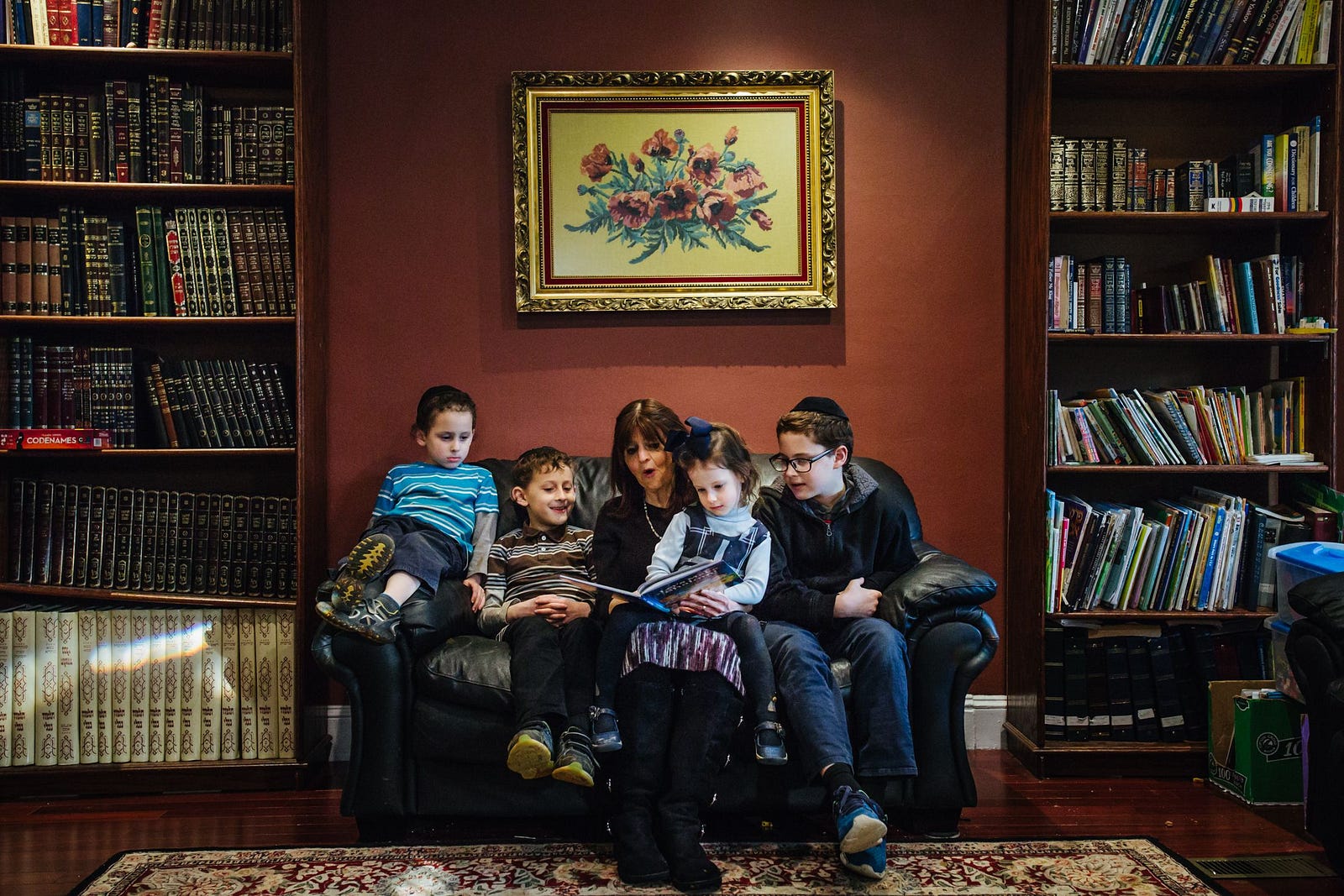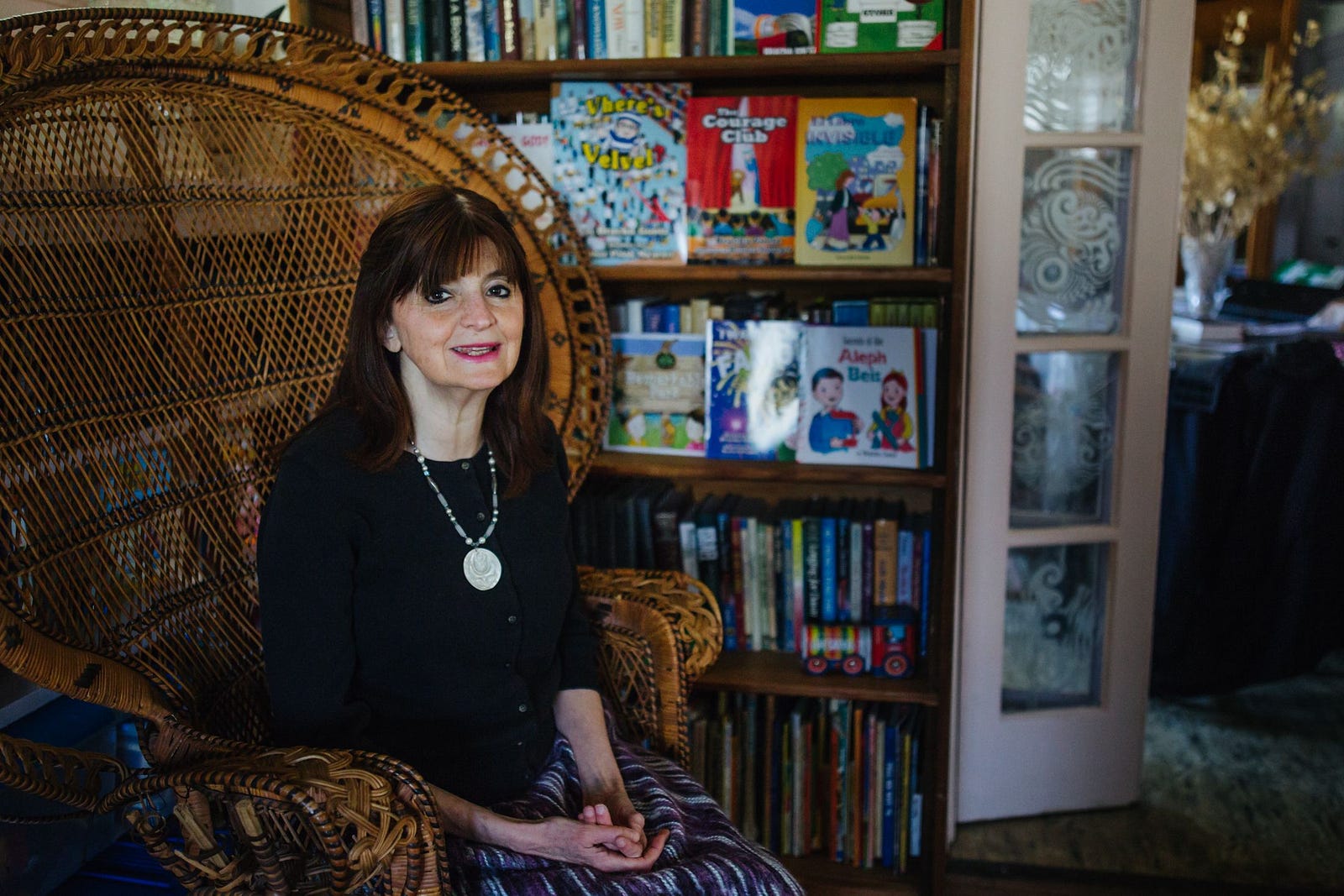As a part of my series about “Mental Health Champions” helping to normalize the focus on mental wellness, I had the pleasure to interview Bracha Goetz. Bracha Goetz is not your typical Harvard grad, as she is the author of 37 simply written spiritual picture books — nothing too complicated. Bracha is also the author of the candid new memoir for adults, Searching for God in the Garbage, that chronicles Bracha’s developing and then joyfully recovering from food addictions. All of her books can be found here.
Thank you so much for joining us! Can you tell us the “backstory” about what brought you to this specific career path?
When I figured out how I was able to overcome food addictions, I wanted to share that discovery with others so they could also recover from addictions in a joyful way.
According to Mental Health America’s report,over 44 million Americans have a mental health condition. Yet there’s still a stigma about mental illness. Can you share a few reasons you think this is so?
When addictions began to be categorized as mental illnesses that was actually less stigmatizing than when addicts were just considered to be bad or lazy or lacking willpower. What’s great is that we are currently evolving to the point where we are able to de-stigmatize addictions even further by seeing addictions as symptoms of a deep spiritual craving.
Can you tell our readers about how you are helping to de-stigmatize the focus on mental wellness?
I am helping to de-stigmatize addictions by spreading the word that addictions serve a vital purpose. Addictions send us an important spiritual message, and we just need to tune in to hear the simple message loud and clear. Addictions are widespread because so many people are experiencing an inner emptiness, and they need to find a way to escape from that nearly constant longing for what they are missing in life. Addictions can temporarily cover up our relentless sense of loneliness and disconnection and make things more comfortable for us for a short while, but they don’t fill us with lasting joy or meaning. My memoir, Searching for God in the Garbage, is a platform upon which I am revealing my own life as a kind of case study because it helps others to also discover how feeding one’s soul helps to stop feeding one’s addictions.
Was there a story behind why you decided to launch this initiative?
I loved discovering in my twenties that people are essentially spiritual beings clothed in bodies. And I simultaneously discovered that spiritual beings need spiritual nourishment to thrive. When we are deprived of the spiritual nourishment that we need on a daily basis — at least as much as our physical nourishment — we are not able to thrive, and addictions are a common result of the desperate craving for what fills our souls. I learned that we are here to experience the greatest pleasure imaginable. And I enjoy sharing how people can overcome addictions through bringing pleasures into their lives that last forever.
In your experience, what should a) individuals, b) society, and c) the government do to better support people suffering from mental illness?
Many of those incarcerated have addictions. Well, actually everyone that has an addiction is incarcerated — whether they are living in a physical jail cell or not. That’s because addictions imprison us into a very narrow way of living. Hopefully, though, the newly passed prison reforms will help to rehabilitate those behind actual physical bars so that they can spend time learning how to genuinely nurture their souls, as this is the most essential education, and it is likely they never received it. As a society and as individuals, the recognition that we are souls, and not merely bodies as we appear, can help to alleviate the suffering from addictions that is so common amongst us. The more value we place on providing ourselves with the spiritual nourishment we need, the more wellbeing we can all savor.

What are your 6 strategies you use to promote your own wellbeing and mental wellness? Can you please give a story or example for each?
- Gratitude is number one. Jewish wisdom teaches that it is wonderful if the first words we say upon awakening are words of gratitude for our souls getting a brand new day of life.
- It’s especially wonderful to receive a new day of life if we know to focus on nourishing our souls throughout the day. Let’s say that somebody is in the midst of overeating. And I think we all know when we are overeating. Try asking yourself this one question, “Is it my body that is hungry or my soul?” See what awareness follows.
- Once we have the awareness that we are engaging in addictive behavior to try to cover up our inner emptiness, we can immediately — right in that moment — think of any number of things that could truly help to fill the emptiness within. And the number of possibilities is infinite!
- Yes, right in that moment, before stuffing another potato chip into our mouths, we could recognize that we are seeking more pleasure in our lives, and opt to get up and stretch. Even just that.
- Or, to increase our wellbeing, we could opt to step outside for a moment or even open a window, to breathe in some nature in the form of sunshine or wind or a gnarled yet beautiful tree.
- And we can always find someone even lonelier to whom we can reach out. We can text, we can call, or we can visit, but whatever we do it will suddenly increase our sense of connection by uplifting another. And guess what? Did you notice? That big bag of potato chips has stopped calling our names so persistently.

What are your favorite books, podcasts, or resources that inspire you to be a mental health champion?
I hope it’s alright for me to talk about my own creations. The picture books I have written all work to help children’s souls start shining as early as possible, so they can keep on shining throughout their lives. Giving young children spiritual tools, helps them to be able to deal with life’s inevitable challenges in as productive and joyful way as possible, hopefully preventing the need for many addictions to develop. I Want to Be Famous! , for instance, lets children’s seek to have their inner spotlight shine, rather than often craving one that is external. Basically, I try to write the kind of books that I wanted to have as a child. My memoir and podcasts are mainly for all the adults who never got to grow up with their souls shining as brightly as they could — and they now really want to enjoy doing exactly that.
Thank you so much for these insights! This was so inspiring!


